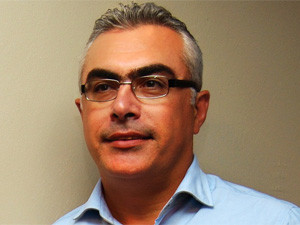
MTN, Uganda's largest mobile operator by subscriber numbers, plans to deploy long-term evolution (LTE) technology "during the coming months" - a move the company says makes it East Africa's LTE pioneer.
MTN Uganda this weekend announced its network infrastructure upgrade plan, which will "provide its customers with world-class data access and speed of up to 100Mbps".
The operator says, with the upgraded data speed, MTN data customers will "enjoy faster access to Internet and superior quality live streaming and video chatting, to mention a few".
ICT investment
MTN has made a number of investments in Uganda over the past two years, with the launch of the country's first mobile money service and the introduction of enhanced 3G technology (3G+ or high-speed downlink packet access).
The operator also extended its fibre network during this period, having laid optical fibre and built regional switching centres in the north, east, west and central regions.
"MTN has also made backhaul links expansion and enhancements to the Mombasa submarine cables (Eastern Africa Submarine Cable System - Eassy, and the East African Marine System - teams). This has enabled connectivity with the rest of the world, while providing better connectivity and high level redundancy for voice and data services."
In terms of network infrastructure, MTN Uganda has up to now deployed 2 800km of fibre backbone, and has - in the last six months - rolled out 81 new base transmission sites to new coverage areas, while commissioning another batch of capacity sites. The operator currently has a total of 1 100 sites.
In 2013, says MTN Uganda, it plans to invest $70 million on top of the $80 million invested last year. "This investment has been mainly in expanding the network infrastructure to support the mobile subscriber growth, as well as roll-out new, innovative products and digital solutions."
African pioneers
Movicel, in Angola, and Mobile Telecommunications (MTC), in Namibia, were the first two operators in Africa to provide commercial LTE.
Angola beat all its African counterparts to the punch last year April when the country's second-largest provider, Movicel, launched an LTE network in the Angolan capital city, Luanda. Namibia's largest mobile operator, MTC, followed suit a month later with the launch of an LTE network in its capital city, Windhoek.
On the home front, SA's largest mobile operator, Vodacom, gave the country its first taste of the fourth-generation technology when it unveiled its LTE network five months later, in October.
Second-largest operator - and second in the LTE line - MTN launched commercial services at the end of November. Cell C and 8ta, SA's smaller mobile players, are currently trialling LTE services and are set to launch commercially in the near future - on the back of participants' feedback and, in Cell C's case, pending a decision by government on its broadband plans for the country's mobile market.
MTN Uganda says the rise of its 3G+ service has given more than one million Ugandans Internet access for the first time, "with widest network coverage, a wide range of devices and affordable tariffs".
The operator's CEO, Mazen Mrou'e, says LTE will now become the new standard when it comes to determining the company's level of technology development, in that data speeds offered will be "substantially faster".
Share